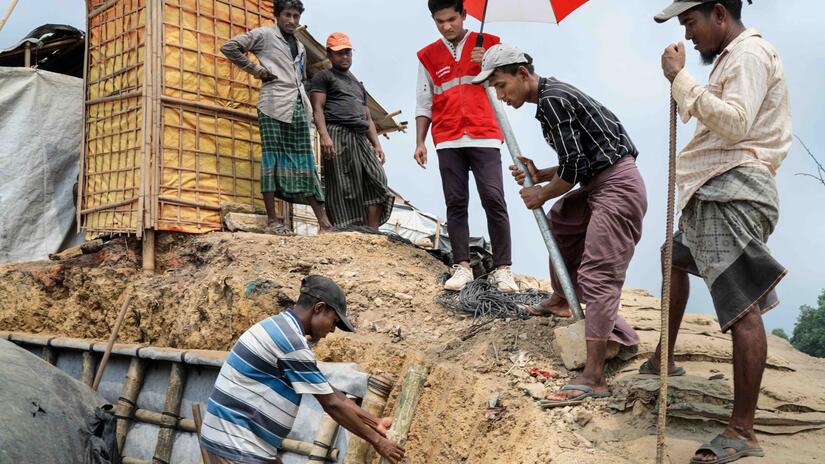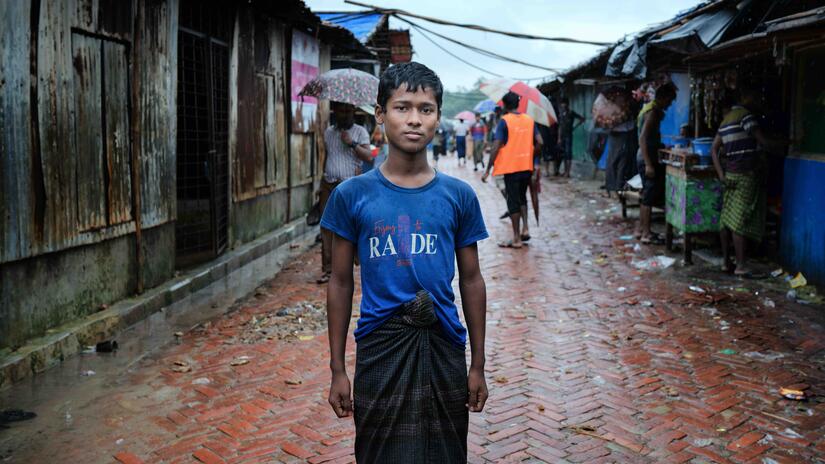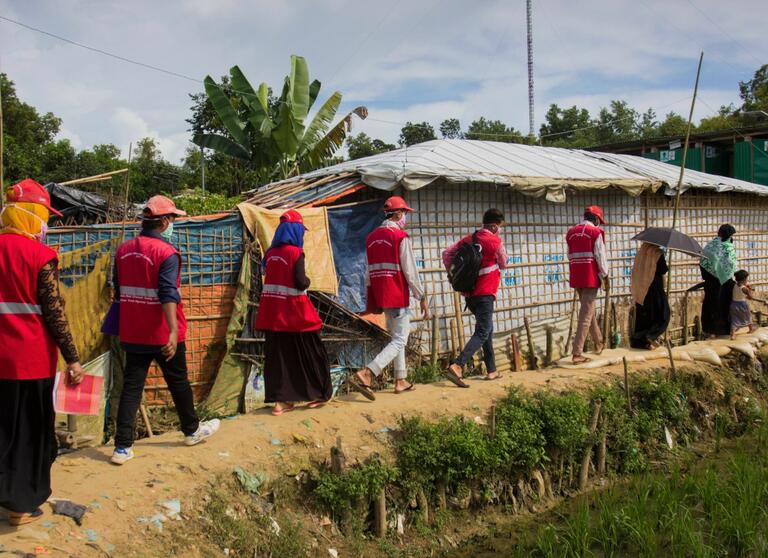Amid the vast expanse of bamboo huts in Cox’s Bazar Camp-11, Bangladesh, 14-year-old Mohammad Shahid is in many ways like any average teenager. He loves to play football, he goes to school and he has big dreams for the future.
“I want to be a teacher and educate people in my community when I grow up,“ he says, his voice soft yet filled with determination.
But this young man’s memories carry far more weight than any teenager should. Memories of fleeing Myanmar, only to end up living in a camp with his parents and sister, and himself—forming a close-knit unit amidst a life of challenges, but where danger is never far away.
During one terrifying day, the relative peace of camp life was brutally interrupted by a roaring blaze that tore through their bamboo haven. Shahid remembers the roaring flames consuming the family home and the sounds of despair echoing through the camp.
“During the fire incident we started running around and I went missing,” he recalls. “Then after an announcement through the [public address] speaker, my parents found me. I was searching for my parents and was in anxiety and fear.”
The family was finally reunited, but the house that had protected them from rain, winds and heatwaves was gone, burnt to the ground along with some 2,000 other homes in the camp.
The Bangladesh Red Crescent Society and the IFRC swiftly came to their aid. "We provided them various support to build shelters," says Asmat Ullah, a volunteer with the Bangladesh Red Crescent Society who himself comes from the displaced community in Cox’s Bazar. “When the fires broke out. Many people suffered. We distributed bamboo, tarpaulin and ropes and necessary support to the families who lost their houses.”

The Bangladesh Red Crescent built about 2,400 new shelters after devastating fire broke out that impacted more than 3,000 families.
Photo: IFRC
A happy ending
Shahid’s family says the loss of their house was a huge blow. But Shahid and his family were able to watch as, slowly but surely, bamboo huts began to rise again. Shahid pitched in; his every effort was filled with dreams of a brighter future.
“Without a home, we might have suffered from storms and excessive heat,” he says. “And that is why my parents and grandparents show their gratitude. Volunteers from the Red Crescent Society came and built a house for us. We are living happily.“
Tania Akter, a Disaster Risk Reduction Officer from the German Red Cross, highlights the significance of these shelters."Considering the camp context, these shelters are the only shelter for them," she says, adding that these structures provide essential stability for all aspects of a healthy happy life amidst an often very unpredictable backdrop.
While the story of the fire ends relatively happily, it’s just one chapter in a story of tremendous upheaval for families like Shahid’s. The young man’s father, Mohammad Hanif, recalls the treacherous journey that led them here. Forced to flee their home in Myanmar, they sought refuge in Bangladesh.
"We got houses, and people love us; we have been living in Camp-11 for the last six years," Mohammad Hanif says, his words laced with gratitude for their newfound community. “If the Red Crescent Society had not built us a house, we would have suffered a lot. We might have suffered a significant loss.”
Shahid, meanwhile, can once again get back to the things he loves most: being with his family, going to school and pursuing his dream to be a teacher, and of course playing football. Running to kick the ball as rain pours down during a recent football match in the alleys of Camp-11, his voice joins the din of laughter and joy. “I love playing football with my friends,” he says, like any teenager might, a radiant smile shining through the falling rain.





